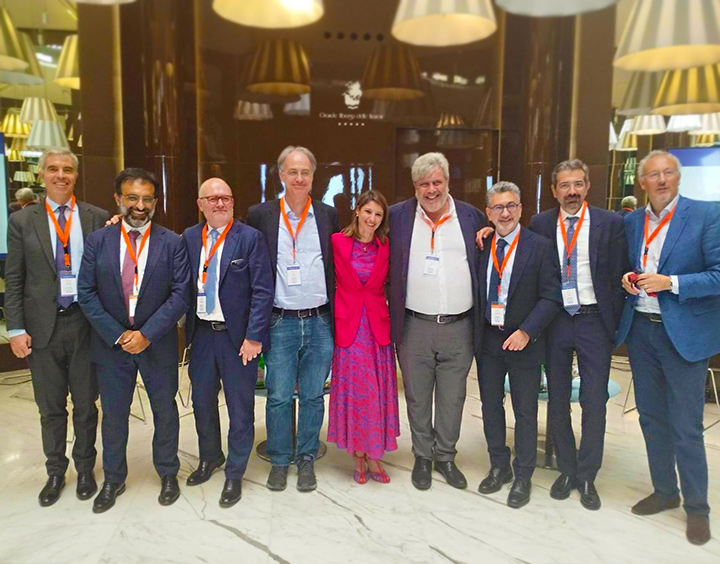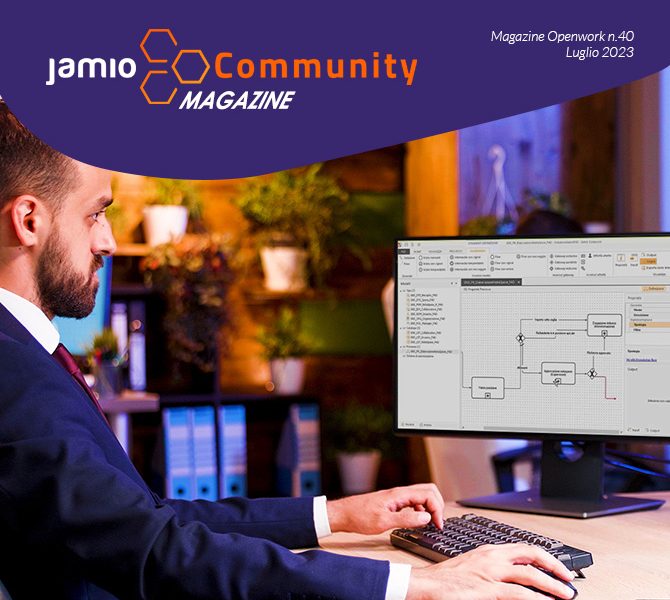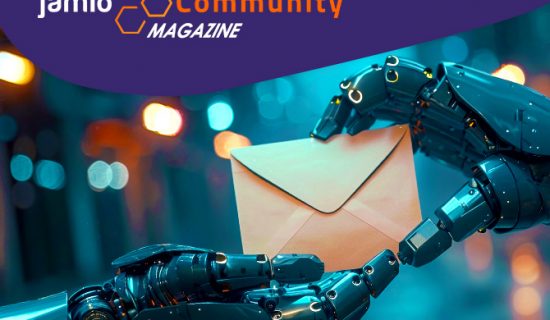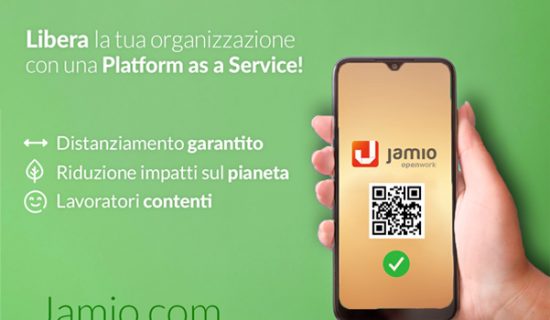Brief account of the Jamio Community Day held in Bari on June 9, 2023
Technological advances in recent years have opened up new possibilities in software development by greatly simplifying the process of creating applications and reducing the need to depend on programming languages. This trend has prompted the ICT and management consulting industries to question the future and focus on a topic of great interest: business application development through low-code and no-code approaches.
"Community is the place where results are achieved together," with these words Maria Soave kicked off the first edition of Jamio Community Day held in Bari, Italy, on June 9, 2023, and immediately got into full swing thanks to the Keynote by Giovanni Vanini, Director of the Automation Division of PwC Italy.
Starting in 2017, PwC Italy has established an Automation group that currently spans various application domains and studies and uses different technologies by paying attention to the low-code/no-codephenomenon. To understand how and where to use such technologies PwC conducted a survey of over 4500 CEOs worldwide:
We are now entering the third generation of automation tools and are talking about the Digital Fabrici.e., technologies that, like a connective tissue, allow different information systems to be connected in order to reduce manuality and inefficiency.
Today's business environments are characterized by the presence of numerous information systems, and Business often requires IT to integrate the various systems with each other quickly and with simple and versatile tools: the need is not just single-task automation but an ''End-to-end process discovery & redesign''.
Analysts say that by 2030 70% of software solutions will be built using low-code and no-code platforms. But how can we classify these technologies?
"Where will the future take us?" Certainly there will have to be a focus on simplifying information systems: usability, user-friendly interfaces and rapid implementations.
Low-code and no-code technologies then become ideal assets and are also the most suitable for bringing artificial intelligence into the processes of organizations.
The full slides of PwC's talk are available here:
After PwC's talk, the discussion began in a panel discussion in which five key players in the use of low-code/no-code approaches participated.
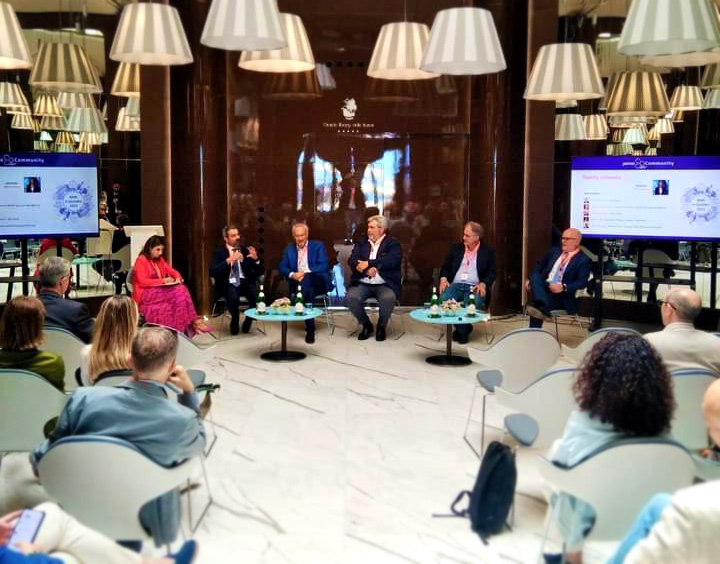
''For what need did you choose low-code and no-code technologies for your companies?''
This is how Maria Soave kicked off the panel discussion by giving the floor to Ilario Benetti, CEO of Apex.
An Openwork partner for about 20 years, Apex is an ICT consulting firm that works with major international brands. Ilario Benetti pointed out that "the adoption of these technologies was motivated not only by their novelty and innovativeness, but also by their ability to meet users' needs in an agile and precise way, compared to traditional solutions."
''Without this technology, a part of our business could not have been realized.'' This is the response of Cristiano Iollo CEO of Unica spa, a company specializing in energy efficiency and the resale of electricity and gas.
Aldia is a fast-growing social cooperative offering various social services through kindergartens, nursing homes, etc., working with public agencies.
''Being super agile while being rigorous i.e., being flexible in rigor,'' Marco Re 's talk highlighted how flexibility and agility offered by low-code and no-code technologies enabled them to meet the changing management needs of an exponentially growing social cooperative.
Also returning to the theme of speed is Massimo Appiotti Partner at Oxygy: ''In the last 75 years there have been many more technological innovations than in the previous 2000 years. '' Itis necessary to face the world and follow its speed in order to be competitive in the market. We have chosen to tackle the redesign of our clients'business processes through low-code and no-code technologies both because of the speed of implementation and because they allow us to create a software solution that totally meets the client's requirements.
Finally, the response from Silvio Totaro of Experis, who said they have started a journey with Openwork to address with the low-code/no-code mode the automation and digitization of processes after verifying it to be the best possible approach to solve their clients' organizational problems.
After a discussion of the importance of training and the possibilities that being part of a collaborative community offers, the focus shifted to the future prospects that low-code/no-code approaches open up:
Aldia
has ambitions to train internal staff to gain autonomy in digitizing many other internal processes;
Unique
sees in low-code and no-code approaches the possibility of easily creating digital solutions that can connect processes and users with the prospect of creating a global energy community;
Oxygy
emphasized that''the future already exists.'' and that todaya company cannot not conceive of itself as digital. Thanks to the flexibility of available tools, it becomes possible even for SMEs to seek Business Oriented digital solutions by involving, in their processes, also customers/partners/suppliers;
Apex
sees the issue of governance in the future, alongside digitization and not separable. Many solutions today are still manual, and low-code and no-code technologies can accelerate and influence the growth of all businesses, from the smallest to the largest;
Experis
expressed the need for the ICT world to change the governance model. Technology must always be supported by governance where rigor with ease must go together.
The discussion closed with remarks from Openwork CEO Salvatore Latronico:''Ours is intended to be a strong testimony to the importance of these technologies and how they will revolutionize the market in the enterprise landscape.The Jamio platform was born with an idea: to enable not only the automation of processes, but also to develop full digital solutions from an enterprise perspective, through the no-code approach. And Openwork has the ambition to become an Italian reference operator that can compete in the market even with large vendors. But this ambitious goal, supported by the many investments made and that already from 2024 will bring tangible results, cannot be alone: we can grow and achieve it are together with our partners and customers: that's why we will push more and more to make our network a Community."
Finally, Martin Arborea Sales & Marketing Director of Openwork announces that that of the Jamio Community Day becomes a format that will be repeated every year and will be the moment when the Community, accompanied throughout the year in a systematic path, will meet physically to take stock of trends and the market, share best practices, activate and/or cement collaborations, and collect and make active proposals for the growth of the Community itself.
